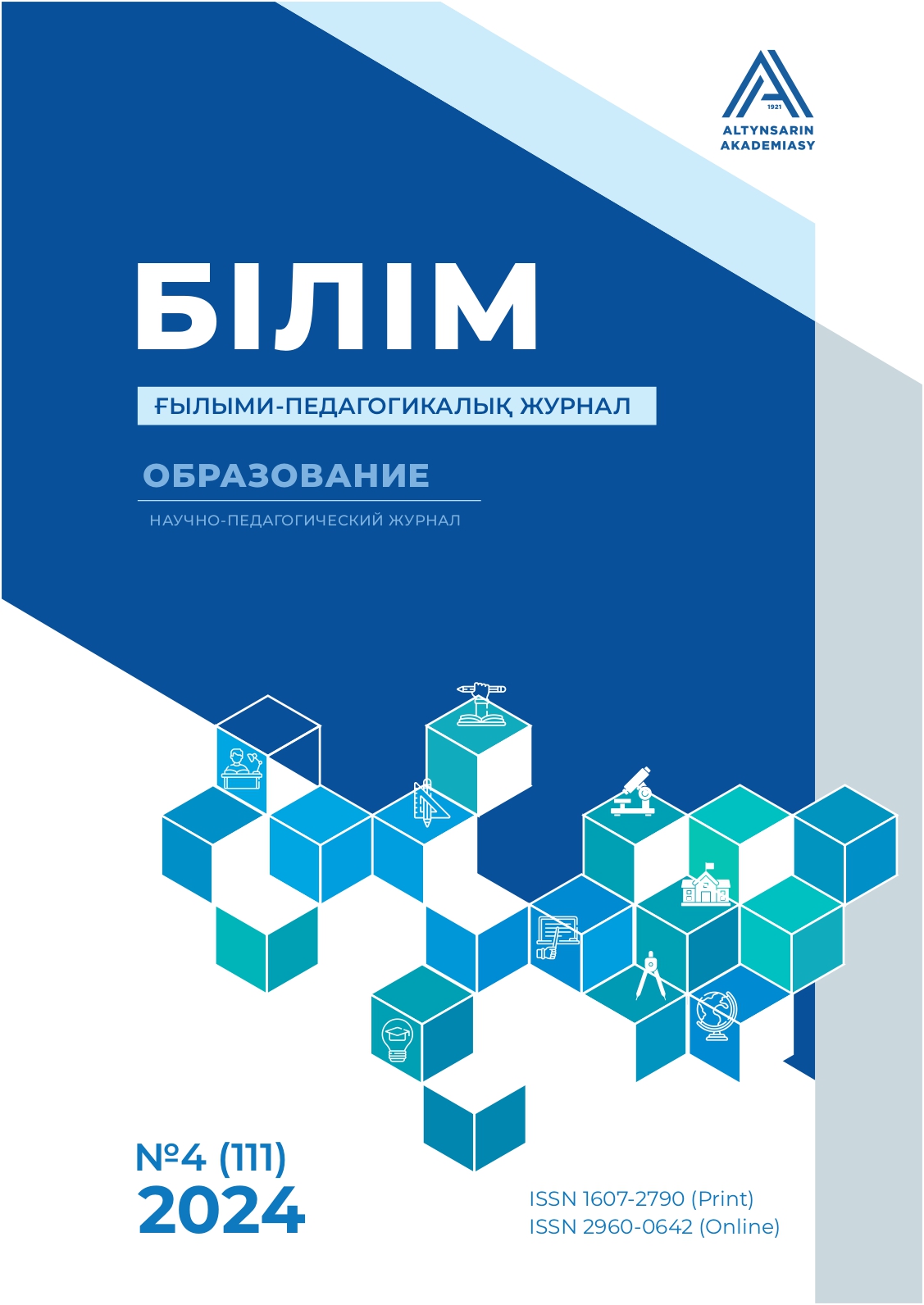Өзін-өзі реттеу оқушылардың прокрастинацияны еңсеру тәсілі ретінде
##plugins.pubIds.doi.readerDisplayName##:
https://doi.org/10.59941/2960-0642-2024-4-181-200Түйінді сөздер:
өзін-өзі реттеу, прокрастинация, эмоционалды реттеу, когнитивтік қайта құрылымдау, жоспарлау, мотивация, оқушыАннотация
Мақалада прокрастинация мәселесі және оның өзін-өзі реттеу дағдыларымен байланысы қарастырылады. Өз эмоциясы мен әрекеттерін тиімді басқара алмау қабілетінен туындайтын прокрастинация, күйзелістің, алаңдаушылық пен өзін төмен бағалауыштыққа әкеледі. Қазіргі, уақытты басқару және тиімділікті бағалау кезеңінде, прокрастинация мақсатқа жетудегі қиын кедергі болып отыр. Зерттеудің негізгі мақсаты – оқушылардың жеке басының кейінге қалдыруды еңсеру қабілетіне өзін-өзі реттеудің әсерін зерттеу. Мақалада өзін-өзі реттеудің қолданыстағы теориялық тәсілдері, соның ішінде Альберт Бандура мен басқа да жетекші ғалымдардың теориялары және олардың кейінге қалдырумен байланысы талданады. Эмпирикалық зерттеу жоспарлау, зейін және когнитивті қайта құру сияқты өзін – өзі реттеу дағдыларын дамыту кейінге қалдыру деңгейінің айтарлықтай төмендеуіне ықпал ететінін растайды. Өзін-өзі реттеу дағдылары жоғары студенттер жақсы оқу үлгерімін, мотивацияны және өнімділікті көрсетеді. Мақалада тәрбиешілер мен психологтарға арналған практикалық ұсыныстар ұсынылады: үлкен тапсырмаларды кішірек тапсырмаларға бөлуге мүмкіндік беретін, стресс деңгейін төмендететін тапсырмаларды жоспарлау және құрылымы; эмоциялар мен шоғырлануды басқаруды жақсарту үшін зейін тәжірибесін енгізу; мотивацияның өсуіне ықпал ететін жағымсыз көзқарастарды позитивтіге ауыстыру үшін когнитивті қайта құрылымдауды қолдану; сонымен қатар тренингтер арқылы өзін-өзі реттеу дағдыларын үйрету және курстар. Осы ұсыныстарды іске асыру кейінге қалдыруды азайтуға және оқу қызметінің нәтижелерін арттыруға айтарлықтай ықпал етуі мүмкін.
 ҚАЗ
ҚАЗ РУС
РУС ENG
ENG
